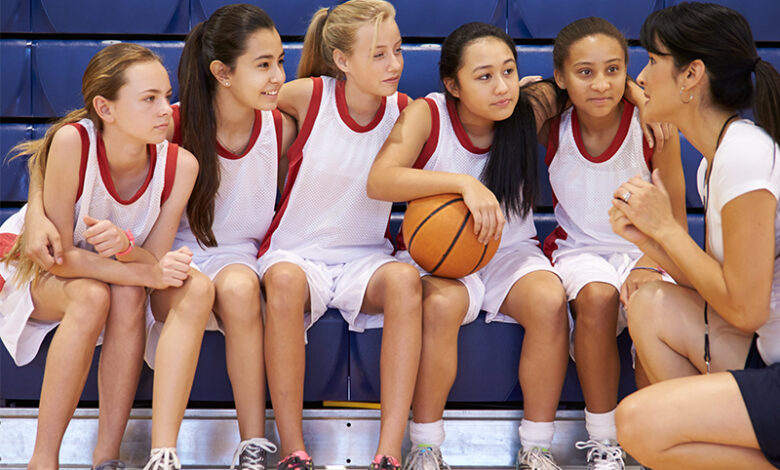What Athletic Coaches Can Do To Strengthen The Impact Of Utah Girls And Young Women

[ad_1]
Utah is full of engaged, passionate individuals who frequently ask the question, “What can I personally and/or professionally do to strengthen the impact of Utah girls and women?” To provide specific answers to that question, the Utah Women & Leadership Project (UWLP) hosted a series of “think tank” gatherings to collect best practices for various stakeholders interested in supporting and empowering Utah girls and women. This idea sheet is based on a 2019 gathering of 25 coaches of girls’ and young women’s sports from around the state of Utah. Sports participation is a widely recognized pathway to leadership, and coaches are in an ideal position to positively influence their athletes. This discussion focused on how coaches can first lead by example and then work to support girls’ personal development and resilience. Attendees also emphasized the importance of building team unity and influencing other stakeholders to strengthen girls and young women in sports.
Leading By Example
Coaches understand they play a role in educating, molding, and inspiring their athletes. One of the most effective methods is modeling the behavior and attitudes they want to see in those they lead. Successful coaches will do the following:
- Set a clear “tone from the top” about accountability and responsibility on a team. This includes preparedness, punctuality, communication, goal setting, sportsmanship, having a clear plan, and exceeding expectations.
- Create a culture of positivity, acceptance, and achievement, with a healthy dose of fun.
- Ensure girls see a love for the sport and for coaching.
Personal Development
Participating in sports provides the opportunity for girls and young women to grow in many ways beyond athletic skills and fitness. Coaches can provide a myriad of opportunities for personal growth in their athletes:
- Follow age-appropriate models for the life lessons players should be learning from being on a team: ages 3-6 (inclusivity, fun, personal attention, making memories, and positivity); ages 7-10 (teamwork, responsibility, fairness, skill-building, and confidence); ages 12+ (understanding distinct roles, strengths and weaknesses, increased competition, and sportsmanship in victory and defeat).
- Use simple tools and activities to inspire and foster character growth: powerful quotes, cheers or mantras, journals, and other tokens or mementos can help girls feel connected to something important and motivated to play their part.
- Create an environment that focuses on skills development, not just on game-time performance.
Resilience
Sports provide an ideal training ground for developing strength of character as well as resilience in times of struggle. Coaches can assist their players in nurturing these crucial qualities:
- Encourage goal setting and accountability for individual success; emphasize a growth mindset and the notion of progress, not perfection.
- Help girls overcome their fear of performance by encouraging them to identify and focus on the factors under their control.
- Reinforce the idea that mistakes are a critical part of the learning process and athletes should feel empowered to try and possibly fail; teach them to learn from their mistakes and become better as a result.
Team Unity
While sports can do much to develop individuals, some of the greatest lessons one can learn involve how to thrive as part of a team. Coaches can facilitate teamwork and unity by doing the following:
- Create a team culture of trust, respect, goodwill, passion, and striving for improvement; ensure every athlete buys in and agrees to support and contribute to the positive team environment.
- Work with athletes and staff to establish team goals, mottoes, and a theme for each season.
- Build cohesion by emphasizing the idea that all players are equally valued and should be treated with respect, regardless of individual talent or playing time.
Outreach
In addition to guiding their athletes, coaches have a powerful influence on parents, their own staff, and others within the larger community. Coaches can lead positive change in various ways:
- Serve as outspoken advocates for girls to participate in sports at all ages and levels; inform stakeholders of the related physical, mental, and emotional health benefits, even for those who may not see themselves as serious athletes.
- Promote more inclusivity in sports participation and continue to challenge social norms surrounding gender and athletics.
- Work to decrease barriers for more girls to play sports (e.g., availability, variety, costs); facilitate the transition for young women to move from recreation to higher level sports if they desire.
To learn more about What Athletic Coaches Can Do to Strengthen the Impact of Utah Girls and Young Women read the entire brief.
[ad_2]
Read More



